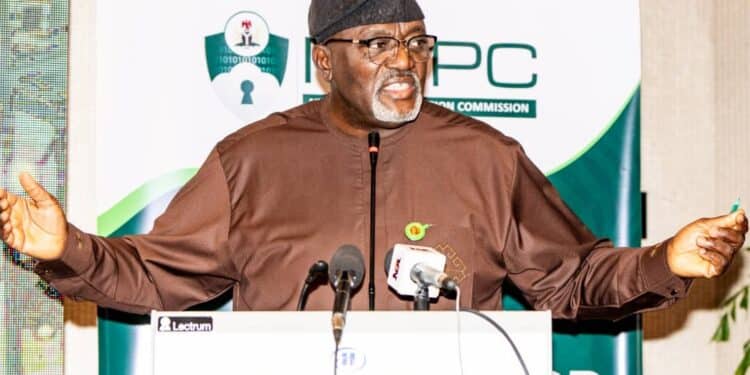Chairman of the House of Representatives Committee on Information and Communications Technology (ICT) and Cyber Security, Hon. Adedeji Dhikrullahi Olajide (Odidiomo), has clarified the provisions of the Cybersecurity Act.
In a statement by Tolu Mustapha, Special Adviser on Media and Public Affairs, Tolu Mustapha to Hon. Olajide, the concerns raised by various stakeholders, including citizens, government agencies, and private organizations, are being addressed with the Thursday’s suspension of the implementation of the cybersecurity Levy.
According to him, the Cybercrime (Prohibition, Prevention, etc.) (amendment), signed into law in 2024, aims to protect Nigeria’s digital space from cyber threats, promote cybersecurity awareness, and establish a framework for incident response.
It will be recalled that a circular from the apex bank on Monday disclosed that the implementation of the levy would start in two weeks’ time.
The circular, directed to all commercial, merchant, non-interest, and payment service banks, among others, revealed that it followed up on an earlier letter dated June 25, 2018 (Ref: BPS/DIR/GEN/CIR/05/008) and October 5, 2018 (Ref: BSD/DIR/GEN/LAB/11/023), respectively, on compliance with the Cybercrimes (Prohibition, Prevention, Etc.) Act 2015.
Hon. Adedeji Olajide, who chairs the committee overseeing the implementation of the Act, emphasised that the legislation is designed to balance national security, citizens’ rights, and economic growth.
“Our goal is to create a safe and secure digital environment for all Nigerians while respecting their privacy and freedom of expression,” he said.
Hon. Olajide, who acknowledged that some provisions of the Act have raised concerns among citizens who fear potential infringement on their rights and freedoms while addressing the issue of the cybersecurity levy, which has sparked debate among stakeholders, explained that the levy is intended to fund cybersecurity initiatives, including awareness campaigns, capacity building, and incident response.
He assured that the levy would be a small percentage of telecom operators‘ revenue and would not burden citizens or businesses.
He further dispelled concerns about potential abuse of power and highlighted the establishment of an independent Cybersecurity Council to oversee the implementation of the Act.
“The Council will comprise representatives from various stakeholders, including government agencies, private sector organizations, and civil society groups, to ensure transparency and accountability,” he said.
Olajide also stated further that the Act safeguards and protects citizens’ privacy.
“Any surveillance activities will be subject to judicial oversight and must meet strict criteria to ensure that individual rights are not violated,” he said.
The committee chairman also acknowledged concerns about the potential impact on small and medium-sized enterprises (SMEs), the backbone of Nigeria’s economy.
“We are working with relevant agencies to ensure that SMEs are not disproportionately affected by the levy or other provisions of the Act,” he assured.
He then reaffirmed his commitment to the well-being of Nigerians: “As Chairman of this committee, I am dedicated to ensuring that the Cybersecurity Act serves the interests of all citizens while also supporting economic growth and national security.”










